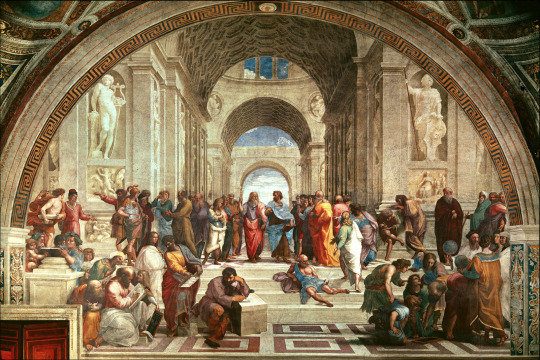Welcome to the Classical Learning Resource Center blog! We hope this space can be a source for useful educational resources and homeschooling tips. The blog will provide updates about new classes, and we will use it to share content in many academic areas such as history, language, art, literature, math, and more. In addition you will find facets of home life ranging from audiobook recommendations to the goings-on at Caesar's farm. We plan to seek out contributions from parents, teachers, and students as well – and hope it will be a place for fostering community.
Don't wanna be here? Send us removal request.
Photo

One of our favorite audiobooks is Herman Melville’s Moby Dick read by William Hootkins. I have to admit that the first time I sat down to read Moby Dick I didn’t get very far but after listening to Hootkins’ audiobook, it has become one of my favorite novels. He manages to bring out all the humor and excitement in this great work of American Literature.
I learned several new words in the process of listening to Moby Dick. One that I especially enjoyed was dyspeptic.
In the course of his novel, Melville refers to both dyspeptic whales and dyspeptic people.
“So soon as I hear that such or such a man gives himself out for a philosopher, I conclude that, like the dyspeptic old woman, he must have “broken his digester.”
“Who would think, then, that such fine ladies and gentlemen should regale themselves with an essence found in the inglorious bowels of a sick whale! Yet so it is. By some, ambergris is supposed to be the cause, and by others the effect, of the dyspepsia in the whale. How to cure such a dyspepsia it were hard to say, unless by administering three or four boat loads of Brandreth’s pills, and then running out of harm’s way, as laborers do in blasting rocks.”
Dyspepsia is a Greek word:
δυσπεψία, ἡ (Noun), indigestion
δύσπεπτος, ον, (Adjective) hard to digest
Plato uses it as an adjective in the Timaeus (83a) when he is discussing anatomy and diseases.
[83α] τροφὴν ἔτι τῷ σώματι παρέχοντα φέρεται πάντῃ διὰ τῶν φλεβῶν, τάξιν τῶν κατὰ φύσιν οὐκέτ᾽ ἴσχοντα περιόδων, ἐχθρὰ μὲν αὐτὰ αὑτοῖς διὰ τὸ μηδεμίαν ἀπόλαυσιν ἑαυτῶν ἔχειν, τῷ συνεστῶτι δὲ τοῦ σώματος καὶ μένοντι κατὰ χώραν πολέμια, διολλύντα καὶ τήκοντα. ὅσον μὲν οὖν ἂν παλαιότατον ὂν τῆς σαρκὸς τακῇ, δύσπεπτον γιγνόμενον μελαίνει μὲν ὑπὸ παλαιᾶς συγκαύσεως, διὰ δὲ τὸ πάντῃ διαβεβρῶσθαι
Plato. Platonis Opera, ed. John Burnet. Oxford University Press. 1903.
[82e] … For when all the substances become reversed and corrupted, they begin by destroying the blood itself, and then they themselves cease to supply [83a] any nourishment to the body; for they move through the veins in all directions and no longer preserve the order of their natural revolutions, being at enmity with themselves because they have no enjoyment of themselves, and being at war also with the established and regular constitution of the body, which they corrupt and dissolve. Therefore all the oldest part of the flesh that is decomposed becomes tough and is blackened by the continued combustion; and because it is eaten away on every side it is bitter, and therefore dangerous [83b] in its attack on any part of the body that is not as yet corrupted.
Plato. Plato in Twelve Volumes, Vol. 9 translated by W.R.M. Lamb. Cambridge, MA, Harvard University Press; London, William Heinemann Ltd. 1925.
It is a compound word. That is, it is composed of two parts that work together to express one overall meaning. In this case we have a prefix attached to the main root. The stem – πεπτ-ός, ή, όν – means cooked. You may also be familiar with ‘pepto’ from the over-the-counter medication used to treat digestive problems – Pepto-Bismol. I’m not sure that’s where the ‘Pepto’ part comes from but it’s certainly an interesting connection.
The prefix - δυσ- negates the word that follows. This prefix is used commonly in Greek in examples like:
ἥλιος, ὁ - Helios – is the Greek word for the sun (cf. Helium, heliocentric …)
δῠσ-ήλιος, ον means sunless
γάμος, ὁ, - A wedding
δύσγᾰμ-ος, ον, - ill-wedded,
We use this same prefix in English in words like:
dystopia - the opposite of utopia
dysphemism - The opposite of euphemism.
dyslexia - from δυσ + λέγω – difficult to read
Apparently dyselxia comes about from a confusion of Greek λέγω ‘say, speak’ and Latin lego – ‘read’
and other medical terms like dysentery, dysplasia …
So literally δύσπεπτος, ον refers to food that is difficult to digest because it is not cooked. Then it comes to mean food that is generally difficult to digest and therefore as a noun, the condition of indigestion. It is also used metaphorically in Greek to refer to people who refuse to be assimilated and as we’ve seen in Moby Dick – to be used of people who are generally irritable, grouchy, or disagreeable whether or not this is caused by indigestion.
Let us strive not to be dyspeptic! And next time you are feeling sick, whether or not you reach for some Pepto-Bismol, perhaps reflecting on the history and etymology of your dyspepsia will make you feel a little better ☺
0 notes
Text
Book Review - The Lion’s World
Mrs. Karen Hetherington’s summer class on C.S. Lewis’ Narnia books for ages 10 and up begins on May 30th, 2017 -- http://clrconline.com/summer-literature-and-composition-courses/#narnia
The Lion’s World. Rowan Williams.
The Chronicles of Narnia.
I’ve grown up with the Narnia stories. I heard them as a child, watched the various BBC series and, more recently, I have rediscovered them with my own children. I know them well, love them and love talking about them with other enthusiasts.
However, a chance gift of The Lion’s World by Rowan Williams (former Archbishop of Canterbury) has given me a new way to look at the world that C.S. Lewis created.
The Lion’s World has as its main focus a quest to understand the reasons for Lewis to write the Narnia books. Why would a middle-aged bachelor and academic choose to write such books? How does Narnia relate to the ideas in his adult writings: academic, apologetic or fiction? Through putting the books into the context of Lewis’ life and other writings, Williams teases out the most important ideas, taking time along the way to counter some of the criticism of Lewis.
According to Williams, ”Lewis is trying to recreate for the reader what it is like to encounter and believe in God.”
He goes on to develop that theme in chapters given well-known sayings as their titles. For example, ‘Not a tame lion’, ‘No story but your own’. As we read the stories and grow to love the characters, we begin to see what happens when our ordinary, flawed lives come across someone quite different.
We live in a world which thinks it knows (and often has discounted) Christianity. Lewis takes his readers to the heart of what it is to encounter God through these stories of children and animals. According to Williams, in so doing Lewis ‘rinse(s) out what is stale in our thinking about Christianity’.
This short book is a delight to read and will get adults going back to Narnia with renewed enthusiasm. What is more, it will help you talk with your children about Narnia as they encounter it for the first time.
The Lion’s World. Rowan Williams. SPCK London 2012.
ISBN 978-0-281-06895-1 ebook ISBN 978-0-281-06896-8
0 notes
Video
youtube
Our first CLRC Video -- an overview of our online Latin 1 class!
0 notes
Text
Welcome to the Classical Learning Resource Center blog
The Classical Learning Resource Center was formed in 2009. Our first year we offered three classes in classical Greek and Latin from a small rented farm cottage in North Idaho – with a wood stove in the middle for warmth.

We’ve grown a lot since then!

Now we offer a comprehensive program in Classical Greek and Latin for elementary, middle school, and high school students.
After our first year, CLRC parents and students told us they wanted help with literature discussion groups and writing instruction. Shortly after that we met a talented young English teacher who began our Literature and Composition program which now has 4 teachers and extends from Language Arts classes beginning at 4th grade to British and American Literature classes in high school.
Eventually we met an outstanding math teacher who joined our team and now offers a complete mathematics program from Basic Math through Calculus and recently added computer programming as well.

At present, the CLRC is a community of over 200 families, about 20 teachers and a handful of wonderful people working with us in accounting, administration, program development and technical support.
In addition to the three programs mentioned above, we’ve expanded to include classes in History, Philosophy, Great Books, Mythology, Astronomy, and many modern Languages including French, German, Russian, Arabic, Japanese, and Chinese.
Our teachers, located in North America and Europe, are highly qualified professionals who love to share their passion for learning with their students.

CLRC families also hail from around the globe! Most of our students are in North America but we’ve also had students from New Zealand, Oman, China, The Czech Republic, Greece, and Spain. We have students in big cities, students who live on farms, students in the wilds of Alaska, and students who head off to surf after class on the beaches of California or Hawaii! Our students are musicians, artists, dancers, robotics wizards, swimmers, horseback riders, basketball stars, track champions… Most are homeschooled but many take our classes in addition to their curriculum at local schools.

All this to say -- Welcome to the Classical Learning Resource Center blog! We will be sharing items of interest from our community. Enjoy!
[We also started a blog to share more of our life in North Idaho -- https://caesarsfarm.tumblr.com/]
0 notes





